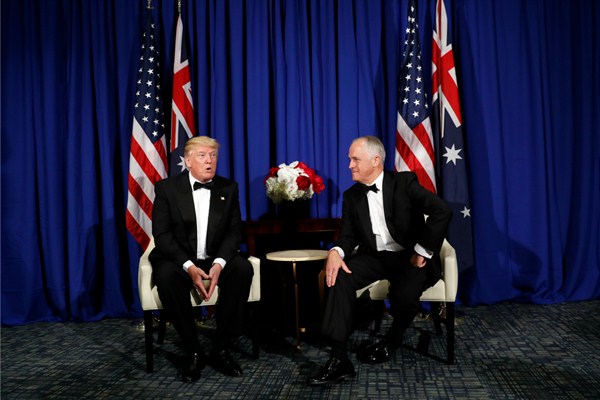To understand the state of Australia’s relations with its closest ally, the United States, seven months into Donald Trump’s presidency, begin by putting aside the most dramatic and well-publicized event so far: the infamous January phone call between Trump and Prime Minister Malcolm Turnbull. It was an uncomfortable moment, and the awkwardness only deepened when the full transcript of the call leaked in early August.
But Trump and Turnbull later made up at a one-on-one meeting in New York, and the U.S. and Australia have agreed on the refugee resettlement deal that the two leaders argued about, so the phone call has no lasting ramifications for the relationship. Except, perhaps, for the way Turnbull ended it. The call was cut short by an exasperated Trump, who could not fathom why his predecessor, Barack Obama, had agreed to the refugee swap, which Trump later called a “dumb deal.” To placate Trump, Turnbull ended the call with an affirmation of loyalty: “You can count on me. I will be there again and again.”
In the circumstances of an unpleasant and argumentative phone call, this could be read as too fawning and submissive. Then again, maybe Turnbull cleverly played to Trump’s vanity in order to preserve the refugee deal that was so important to his own political fortunes in Australia. Trump may have hated the agreement, but at no point in the phone call or after did he repudiate it.

